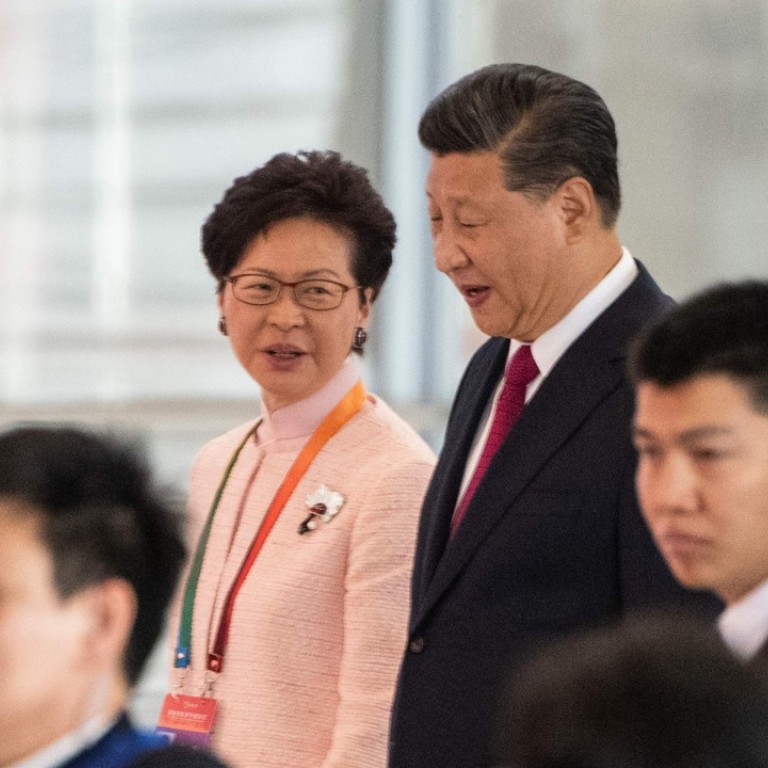
British colonial officials fought hard for Hong Kong and its people, so why can’t Carrie Lam?
- Kevin Rafferty says the chief executive has failed Hong Kong by clamping down on talk of independence and self-determination. And if the latest ban on Victor Mallet was ordered by Beijing, it calls into question Hong Kong’s future
The response, if any, of Hong Kong’s chief executive, is not recorded. If she really understood her job as leader of Hong Kong, she would have dared suggest to Xi that Hong Kong’s continuing contribution to the motherland is best made by being different from mainland China, as an international window on the outside world, an intermediary between freewheeling global capitalism and the restraints of China. In plainer language, Lam should have the guts to stand up for Hong Kong and its people. Regrettably, she shows no sign of doing so.
This bogus claim about dark forces fomenting independence for Hong Kong, perhaps led by the former British colonialists, should have been nailed long ago. My reporting from London and Hong Kong in the early 1970s was that Whitehall civil servants were anxious to get rid of Hong Kong, but they recognised that independence was never an option and were waiting on China’s decision.
Self-determination means we want our own shout on the way we are ruled. Within the restrictions and promises of the Basic Law – within the restriction that there can be no independence – it is perfectly possible, even advisable in a sophisticated territory like Hong Kong, for citizens to be given the important say on how they are governed, how the chief executive and legislature members are chosen.
The latest depressing speck of news was that Hong Kong immigration officials took another swipe at Victor Mallet, the Financial Times journalist. Last week, he sought entry as a visitor, which would normally give him 180 days; instead, immigration officers questioned him for four hours and refused to allow him into Hong Kong.
If this is all a tit-for-tat response for Mallet’s role in hosting Andy Chan Ho-tin of the then yet-to-be-banned Hong Kong National Party at the Foreign Correspondents’ Club, it is dangerously childish; if it is an effort to please Beijing, then Lam needs lessons in standing up for Hong Kong; if the rejection was ordered by Beijing, then it calls into question Hong Kong’s future.
I respectfully suggest that Lam study the history of some of the now damned British colonialists. Many colonial civil servants – the people on the ground running the government in Hong Kong, as opposed to their masters in Whitehall and Westminster – fought tooth and nail for Hong Kong’s interests, challenging London fiercely. Their success made possible the rise of Hong Kong as a dragon economy and one of the most dynamic cities in the world.
Britain’s failure to introduce democratic elections in Hong Kong, even though it had done so in other colonies from India to Singapore, was at the behest of China, which feared having to face a government with democratic legitimacy.
Financial secretaries John Cowperthwaite and Philip Haddon-Cave defied London to move much of Hong Kong’s foreign exchange reserves out of sterling. In bitter trade and textile talks, Bill Dorward and other officials fought for Hong Kong manufacturers against Lancashire’s powerful textile lobby.
Lam has not shown the same guts to fight for Hong Kong. She is doing great damage to Hong Kong’s international standing by bullying Mallett, and ultimately hurting China, even though Beijing is too blind to see that a puppet Hong Kong diminishes China.
Kevin Rafferty was Asia editor of the Financial Times in the 1970s and opened the paper’s first office in Hong Kong in 1980

